I have a numpy array with an image, and a binary segmentation mask containing separate binary "blobs". Something like the binary mask in:

I wish to extract image statistics from pixels in correspondence of each of the binary blobs, separately. These values are stored inside a new numpy array, named cnr_map.
My current implementation uses a for loop. However, when the number of binary blobs increases, it is really slow, and I'm wondering if it is possible to parallelize it.
from scipy.ndimage import label
labeled_array, num_features = label(mask)
cnr_map = np.copy(mask)
for k in range(num_features):
foreground_mask = labeled_array == k
background_mask = 1.0 - foreground_mask
a = np.mean(image[foreground_mask == 1])
b = np.mean(image[background_mask == 1])
c = np.std(image[background_mask == 1])
cnr = np.abs(a - b) / (c + 1e-12)
cnr_map[foreground_mask] = cnr
How can I parallelize the work so that the for loop runs faster?
I have seen this question, but my case is a bit different as I want to return a numpy array with the cumulative modifications of the multiple processes (i.e. cnr_map), and I don't understand how to do it.